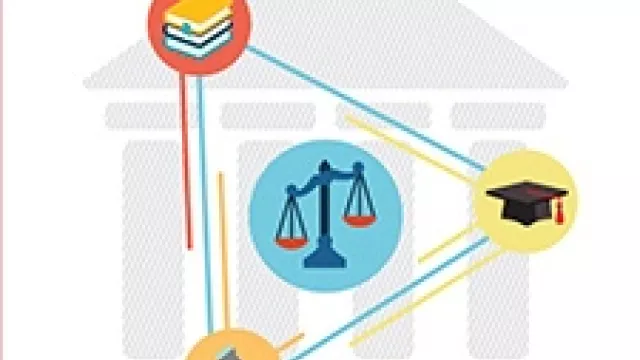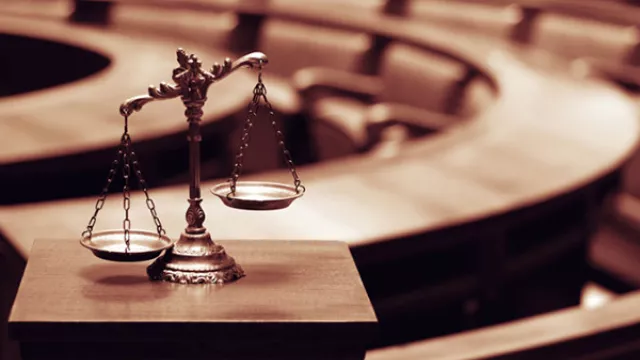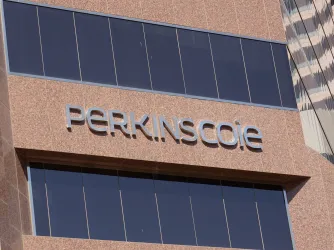Table of Contents
How due process ensures fairness and protects from governmental overreach

NBA star Enes Kanter Freedom knows the cost of censorship. When he started speaking out against the government of his native Turkey, Turkish officials put his dad in jail, revoked his passport, and forced his family to disown him.
Due process is one of the most important concepts in the U.S. Constitution and American jurisprudence. It refers to the idea of fundamental fairness, that the government must treat an individual according to rules and procedures. Due process may be the single most important guarantee in the Constitution and the entire legal system to ensure that the government does not run roughshod over individual liberty.
Due Process is so important that it is mentioned twice in the Constitution — in the Fifth Amendment, which limits the federal government, and the Fourteenth Amendment, which limits state and local governments. Both the Fifth and Fourteenth Amendment Due Process clauses prohibit government officials from depriving an individual of “life, liberty, or property without due process of law.” It also applies in both civil and criminal cases.
Due process ensures a level of fundamental fairness for the individual from governmental overreach.
Due process rights are important in a wide variety of contexts, such as housing evictions, immigration removal proceedings, termination of governmental benefits, and campus disciplinary proceedings. Think about it — if you are charged with a serious criminal offense that could brand you with a record or serious civil charges that could lead to your expulsion from school, you would want the proceeding to be fair rather than a sham. FIRE’s Guide to Due Process and Campus Justice explains that “[d]ue process has evolved over the centuries as a way to ensure that accusatory proceedings produce accurate and truthful results.”
Types of due process — procedural and substantive
There are two basic types of due process: (1) procedural due process and (2) substantive due process. Procedural due process refers to procedure, the idea that before the government can take away or deprive an individual of a “life, liberty, or property” interest, the government must provide the person with procedural safeguards — often notice and some opportunity in a hearing to contest the governmental action. If a public school principal suspends a student without giving that student a chance to tell her side of the story or later contest the matter in a hearing, the principal has violated the letter and spirit of procedural due process. Justice Felix Frankfurter beautifully captured the essence of procedural due process and its importance, writing: “The history of American freedom is, in no small measure, the history of procedure.”

FIRE's Guide to Due Process and Campus Justice
Campus Guides
This FIRE Guide informs readers about the appropriate (and inappropriate) methods by which university administrators address issues of academic and non-academic misconduct.
Substantive due process is much different. It refers to the idea that the underlying substance of the law must not be too arbitrary or unreasonable. Laws that are too vague, too broad, or too unfair can violate substantive due process.
One of the more egregious violations of substantive due process in modern times arose from attempts to ban interracial marriages. The Supreme Court famously ruled in Loving v. Virginia (1967) that Virginia’s law violated due process, because the law unfairly deprived individuals the right to marry the person of their choosing.
“The freedom to marry has long been recognized as one of the vital personal rights essential to the orderly pursuit of happiness by free men,” wrote Chief Justice Earl Warren. “To deny this fundamental freedom on so unsupportable a basis as the racial classifications embodied in these statutes, classifications so directly subversive of the principle of equality at the heart of the Fourteenth Amendment, is surely to deprive all the State's citizens of liberty without due process of law.”
The Supreme Court and due process on campus
Due process freedoms are designed to ensure that before public college and university officials — or public school officials at the K-12 level — suspend or expel a student, thus depriving them of their property right to an education, the officials must provide procedural due process protections. Depending on the charges, school officials might also negatively impact a student’s liberty interests. This means that they must provide the students with adequate notice of the charges, give them access to information and evidence in the case, and provide them with a fair hearing where they can meaningfully defend themselves.
Consider the case of Goss v. Lopez (1975). It involved the suspension of nine different students from different high school and middle schools in the Columbus Public School System. One of those students was Dwight Lopez, who attended Central High School. A disturbance arose in the lunchroom that led to fights and property damage. Lopez contended that he was merely an innocent bystander and did not participate in any fisticuffs or property damage.

Due Process on College Campuses
Issue Pages
Students at state universities have constitutional due process rights that their universities cannot violate in the course of conducting student disciplinary proceedings.
Lopez and others sued, because they were summarily suspended 10 days without a hearing. The Supreme Court first explained that because Ohio law provided students with a free public education, the students had “legitimate claims of entitlement to a public education.” In other words, Lopez and the other students had a protected “property” interest that triggered the protections of Due Process.
Lopez and the other suspended students also had a “liberty” interest in being free from “arbitrary” intrusions upon their reputation. The suspensions accused the students of serious charges that impacted their reputations. “If sustained and recorded, those charges could seriously damage the students' standing with their fellow pupils and their teachers as well as interfere with later opportunities for higher education and employment,” the Court wrote.
Thus, the Court held that the actions of the school officials triggered Due Process, because the students had a property right in their education and a liberty interest in their reputations. Then, the Court held that the public school officials in Columbus failed to provide adequate procedural due process protections. “Among other things, the State is constrained to recognize a student's legitimate entitlement to a public education as a property interest which is protected by the Due Process Clause and which may not be taken away for misconduct without adherence to the minimum procedures required by that Clause,” the Court explained.
Due process may be the single most important guarantee in the Constitution.
School officials argued that the suspensions were temporary and did not permanently deprive the students of an education. But, the Court responded that the 10-day suspensions were not “de minimis” and “may not be imposed in complete disregard of the Due Process Clause.”
The Court explained:
We do not believe that school authorities must be totally free from notice and hearing requirements if their schools are to operate with acceptable efficiency. Students facing temporary suspension have interests qualifying for protection of the Due Process Clause, and due process requires, in connection with a suspension of 10 days or less, that the student be given oral or written notice of the charges against him and, if he denies them, an explanation of the evidence the authorities have and an opportunity to present his side of the story. The Clause requires at least these rudimentary precautions against unfair or mistaken findings of misconduct and arbitrary exclusion from school.
The Court identified the minimum procedural safeguards as (1) oral or written notice of the charges, (2) explanation of the evidence against the student; and (3) an opportunity to present the student’s side of the story. The Court also explained that “as a general rule notice and hearing should precede removal of the student from school.”
The Court in Goss was careful, however, to note:
We should also make it clear that we have addressed ourselves solely to the short suspension, not exceeding 10 days. Longer suspensions or expulsions for the remainder of the school term, or permanently, may require more formal procedures. Nor do we put aside the possibility that, in unusual situations, although involving only a short suspension, something more than the rudimentary procedures will be required.
Other courts have found due process violations when students are not given an opportunity to cross-examine their accusers, when students do not receive evidence that might exonerate the student, when students do not receive the presumption of innocence in disciplinary proceedings, and when students do not get the chance to put on a full defense.
FIRE has warned in its Spotlight on Due Process reports that many colleges and universities “fail to afford their students due process and fundamental fairness” in their disciplinary proceedings. In fact, some of the disciplinary systems at colleges and universities more closely resemble a “shadow justice system.”
Similar problems arise at the K-12 public school systems, where critics warn that due process protections are far from consistent. Zero tolerance and other harsh disciplinary processes place students in potentially perilous positions. But, as Derek W. Black writes in "Ending Zero Tolerance: The Crisis of Absolute School Discipline," “constitutional protections are the only absolute checks on abuses in school discipline.”
Why due process is important
Due process ensures a level of fundamental fairness for the individual from governmental overreach. It ensures that the government does not act arbitrarily. It does this by ensuring that before the government can invade individual life, liberty, or property, they provide procedural safeguards. It also means that the substance of laws must not directly violate fundamental rights trigger life, liberty, and property interests. As FIRE explains in its Guide to Due Process and Campus Justice: “the notions of due process, fundamental fairness, and fair procedure are as vital and necessary to society as any area of the law.”
Recent Articles
FIRE’s award-winning Newsdesk covers the free speech news you need to stay informed.

FIRE POLL: Only 1/4 of Americans support deporting foreigners for pro-Palestinian views

Harvard’s resistance to Trump is a model for US universities

Sixty-one media organizations and press freedom advocates contest Perkins Coie executive order — First Amendment News 466


